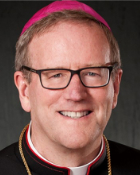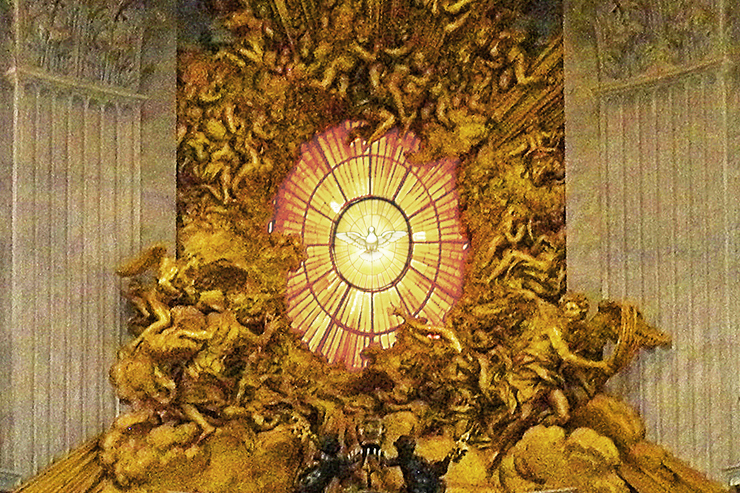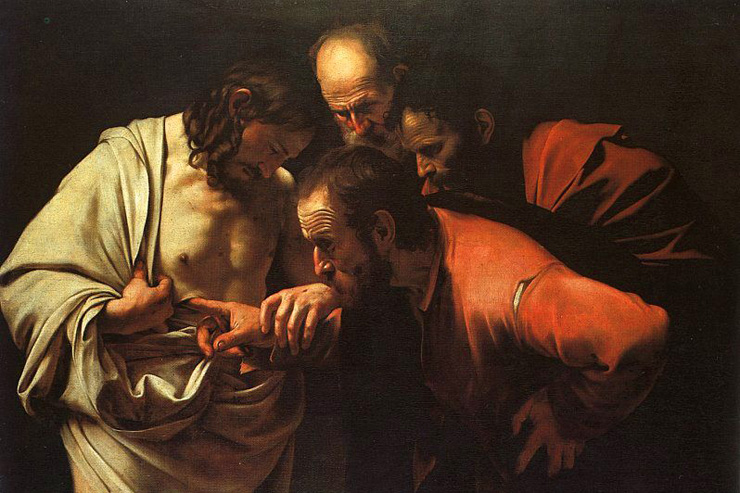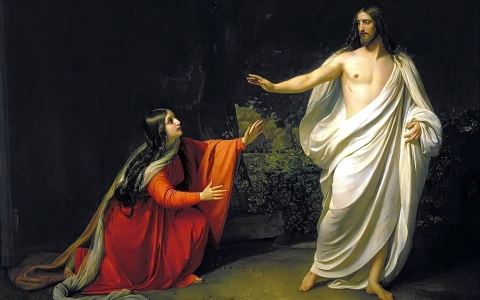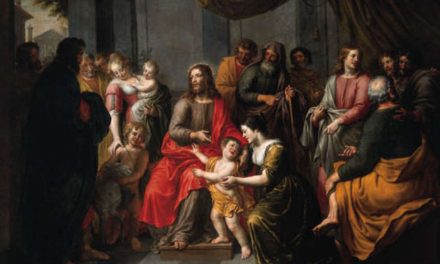
Pope John Paul II - The New Evangelization
Some weeks ago, I gave a sermon in which I mentioned Keith Richards, the lead guitarist for the Rolling Stones. I recounted how struck I was by a passage from Richards’s autobiography in which the guitarist described the almost maniacal dedication with which he and his bandmates set out to learn Chicago blues. “Benedictines,” he said, “had nothing on us.” I urged my listeners to approach their spiritual lives with the same “Benedictine” focus and fervor that the young Rolling Stones had in regard to the blues. I was also quick to point out, with a laugh, that I didn’t want people to buy Richards’s autobiography for their teen-agers as Confirmation presents! Keith, I indicated, had walked down lots of bad paths. Now just after that Mass, I went out to breakfast with my sister and her family and my mother. My mother said, “Bobby, I thought your homily was fine, but I wish you hadn’t mentioned that awful Keith Richards, who is just the epitome of nothing!”
As anyone who knows me well can testify, I’m a big fan of Bob Dylan. I first came across his music when I was a teenager, and his songs have shaped my imagination and conditioned my thinking — even about religious matters — ever since. Accordingly, I have quoted Bob Dylan in most of my books and in many of my talks and DVD’s. In fact, in one of my recorded retreats, I referred to him as a hero of mine. Some people have complained about this, observing that Dylan was at one point in his life a drug addict and that the singer could hardly be described as “orthodox” in all of his opinions. How, therefore, could a Catholic priest quote him so favorably?
Around the same time I discovered Bob Dylan, I first read Thomas Merton’s autobiography The Seven Storey Mountain. This gripping narrative of a young man’s conversion from a worldly self-absorption to Catholicism and finally to the rigors of a Trappist life had a decisive impact on me, playing a key role in shaping my desire to become a priest. I have often said that Thomas Aquinas had the biggest influence on my mind and that Thomas Merton had the greatest influence on my spirit. Therefore, it should be no surprise that I have quoted Merton liberally in my writings and that I’ve used him rather extensively in my videos and retreats. My citation of Merton has also aroused opposition. Some have argued that his personal life, even after his conversion, was not without ambiguity and that his opinions, especially toward the end of his life, seemed to drift in the direction of syncretism and Buddhism.
Now, I think that my mother was a tad strong in characterzing Keith Richards as “the epitome of nothing,” but I would certainly confess that he leaves a great deal to be desired both in his theoretical convictions and his behavior. Furthermore, I would concur that Bob Dylan was, at least during the sixties, a drug addict and that his theological thinking would not exactly correspond to Catholic orthodoxy on every point; finally, I would agree that Thomas Merton, like many others in the sixties, got a little confused and consequently said and did some things that I wouldn’t wholeheartedly recommend. And yet, I would strongly defend my decision to quote from these figures in my work. How come? First, I would point out that the citation of one statement from a given figure is by no means equivalent to a wholesale endorsement of everthing that person ever said or did. I admire Lincoln and quote him with enthusiasm, but I think that Lincoln’s understanding of God was, in many respects, deeply inadequate; I love certain of Picassos paintings, especially from his earlier periods, but I also think that some of his work is offensive; I have relied on Heidegger’s philosophy in my own theological work, but I hate the fact that, at least for a time, Heidegger was a Nazi sympathizer. My point is this: if I were limited to citing only those figures who were utterly correct in every aspect of their thinking and acting, I’d quote only Jesus and the Blessed Mother!
But more to it, I believe that the use of less than perfect figures is essential to the work of the new evangelization. Keith Richards is not a saint, but he’s well known in the counter-culture, and hence he can function as a lure to those who would never be tempted to darken the door of a church. Bob Dylan is not Thomas Aquinas, but he gives entrée to a world that Aquinas could never reach. Thomas Merton might have been a tad too open to the dialogue with Eastern religions, but that very openness makes him a point of contact with many outside the church. In point of fact, Thomas Aquinas himself cited, among many others, Aristotle (a pagan scientist), Moses Maimonides (a Jewish rabbi), Avicenna and Averroes (Muslim philosophers), and Origen (a theologian who had been condemned by the church for certain of his positions).
Thomas is my model in this regard. My fear is that a hyper-fussiness about the intellectual and moral integrity of those I cite would lock me into a feedback loop, a closed-in conversation with entirely like-minded people. Jesus told us to preach to all the nations, and Pope John Paul II urged us to reach out to the unevangelized world. In my judgment, we can’t afford to be too prim if this great mission is to be accomplished.
We value your comments and encourage you to leave your thoughts below. Please share this article with others in your network. Thank you! – The Editors

